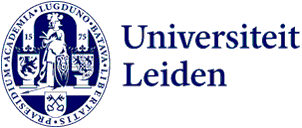
‘We are destroying our own planet' (and Latin America pays the price)
The whole world gets raw materials from Latin America, but at the expense of nature. Håvar Solheim researches the role of organised crime in this environmental crime and Soledad Valdivia researches sustainable urban initiatives in Latin America. What do these university lecturers think the future of Latin America will look like?
Latin America has always been a source of raw materials, especially for western countries. From the moment Columbus arrived until the present, the continent has often been controlled by foreign interests. According to university lecturer Håvar Solheim, this causes many problems. ‘We can see more and more environmental crime, which causes enormous damage to the fragile nature in Latin America.' A well-known issue is the Amazon. 'The more Latin America is involved in world trade, the more organised crime there is. In order to make as much money as possible, organised crime abuses its position of power in corrupt areas to exploit the region. Massacres, biodiversity that is destroyed by deforestation and companies dumping chemical waste in the Amazon. It is a very complex phenomenon,' says Solheim.
From bananas to wooden garden furniture
According to Solheim, we are a big part of this problem: ‘As long as we, here in the far north, want all kinds of products, from beautiful wooden garden furniture to bananas, we are complicit. We don’t pay attention to the conditions in Latin America, to the working conditions on banana plantations, or poor people who work the land without protection against poisons. We need to be more aware of the drastic consequences of our level of consumption. If we are not willing to change the way we live, we will end up destroying our own planet.’ It is very difficult for Latin American countries to change anything. ‘They are not the richest countries in the world and, moreover, they are dependent on the export of raw materials. In addition, the landscape doesn’t help: Colombia, for example, cannot control the entire border area because it includes thousands of kilometres of jungle. It is a game of cat and mouse between organised crime and the government. We have to tackle this issue at an international level, or we won't have any Amazon left in a few years' time.’

Curitiba as a smart city
Despite everything, there are also a lot of things in Latin America in the field of sustainability that are going well. University lecturer Soledad Valdivia Rivera researches these initiatives. One example is Curitiba, a city in Brazil. ‘In Curitiba they were able to intervene earlier, it has not grown as fast as other cities in Brazil. The idea of a smart city is central to this city and transport plays an important part in a city’s planning. In this city, they provide modern systems for public transport. Normally, a city is designed with cars in mind, but that has a polluting effect and not everyone owns a car. Curitiba is different and pedestrians are taken into account, they are also given their space. In addition, 70% of the waste in the Brazilian city is recycled.’ According to Valdivia Rivera, it is important for these kinds of smart cities to have small-scale projects and to work together with citizens. 'It has a much greater effect in terms of sustainability: smaller projects are usually short term, causing citizens to better adapt to the changes that are taking place all the time.'
Own food supply in Havana
Another sustainable city is Havana in Cuba. ‘This city is very sustainable in terms of food supply. Obtaining food on the island has always been difficult. In addition, Cuba became politically isolated, which made it impossible to import food. The Cuban government was forced to look at alternative solutions, such as urban food gardens. Citizens grow their own food in their own gardens. And because chemical pesticides cannot be imported either, the food is largely grown ecologically and organically'. Although these kinds of projects are nice, according to Valdivia Rivera something has to change, soon. 'In Bolivia, a law has been passed that recognises the world, Mother Earth, as a legal entity. This means that the planet has rights that must be protected and safeguarded. It is a completely different way of looking at nature than we do now. We usually see the earth only as a source of raw materials to use, but we should be protecting the earth instead of using it all the time. If nothing is done in Latin America, we will have to deal with the consequences of deforestation and climate change.’
International approach
According to Solheim and Valdivia Rivera, more international pressure is necessary. ‘Without an international approach, it is almost impossible to combat climate change. Multinationals already knew about it 30 years ago, but continue their practices - despite knowing they are guilty,' says Solheim. ‘Agreements are made by world leaders, but we don’t see any real action yet. I hope that this realisation will come and that it will initiate a major structural change,' Valdivia Rivera concludes.
